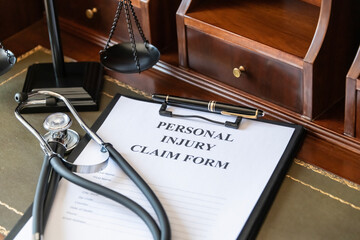When you sustain injuries in a slip and fall accident, you have several legal options. Settling is much faster and inexpensive than litigation, but depending on the details of the situation filing a lawsuit may be necessary. Before taking dire action, read here to learn about the process of filing a slip and fall claim. Obtain help from an experienced Kane County slip and fall lawyer.
What is a Slip and Fall?
A slip and fall is an accident that occurs generally under premises liability law. According to this law, property owners and managers have a legal obligation to maintain a reasonably safe environment for visitors, consumers, or guests. They are required to do upkeep, regularly check for issues, and resolve hazards as soon as possible.
If an accident or injury occurs as a result of the property owner’s negligence, they can be held liable and be responsible for covering the victim’s associated costs.
What is the Process for Filing a Slip and Fall Claim?
Gather evidence
The first and one of the most important steps in filing a personal injury claim is gathering evidence. You must have solid information backing up your claim. This can include:
- Photos of the scene of the accident, nearby hazards that contributed to your fall, signage, visible injuries, etc.
- Eyewitness statements from people who saw the accident happen
- Surveillance footage from security cameras
- Medical records including doctor visits, treatments, diagnoses, prescriptions, and bills
Speak with a lawyer
It is always wise to consult a professional before taking any legal action. An experienced attorney can assess the details of your case to determine whether or not you have a valid claim, offer advice to strengthen your position, communicate and negotiate with the insurance company on your behalf, and guide you through the often complex process.
File an insurance claim
With the help of your lawyer, file a claim with the negligent party’s insurance company. In the claim, include detailed information about the accident and your injuries. Provide evidence and explain the types of compensation you expect.
Negotiate
The insurance company may offer a settlement after reviewing your claim. It is important to keep in mind that these entities focus mainly on awarding the least amount of compensation possible per settlement. They may offer a lowball number, pressure you to accept, delay communications, etc. in an attempt to force your hand. Your lawyer will be well versed in their tactics and can negotiate on your behalf, refusing to settle for less than what you are owed.
Settlement
After some back and forth you and the insurance company may come to an agreement on a reasonable settlement amount. By accepting their offer you will receive damages, but you will also be waiving your right to further compensation or legal action.
Litigation
If a satisfactory settlement cannot be reached, you may have to reject the offer and file a lawsuit. In this case, you will go to court and a judge or jury will determine the outcome of your compensation. Litigation can be an expensive and time-consuming process, but it may be necessary to ensure you are awarded the compensation you deserve.


